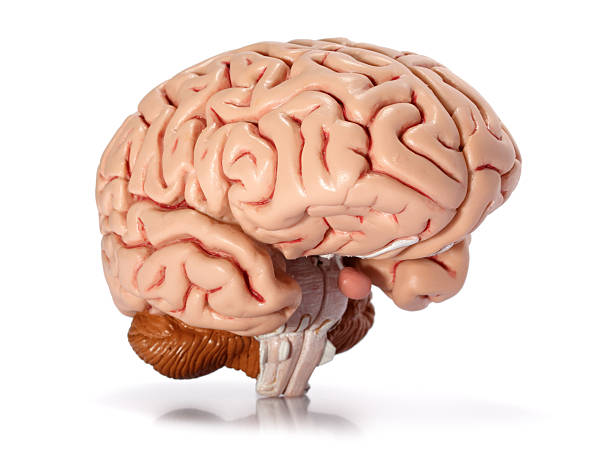Inside your body exists an entire hidden universe—an ecosystem teeming with trillions of microscopic organisms that quietly influence nearly every aspect of your well-being. This invisible world is known as the gut microbiome, and it is made up of bacteria, viruses, fungi, and other microbes that live primarily in your intestines. For decades, scientists viewed these microbes mainly as passengers, or worse, as invaders that caused disease. But now, research has revealed a startling truth: your gut microbiome is not only essential for digestion but also deeply connected to your immunity, metabolism, brain function, and even your mood.
Imagine it as a bustling city inside your gut—each microbe has a job, from breaking down food to producing chemicals that communicate with your brain. When this city thrives, you thrive. When it falters, disease often follows. In this article, we will explore ten fascinating, scientifically backed ways that your gut microbiome affects your health.
1. Your Gut Microbiome Shapes Your Digestion
The most obvious role of your gut microbiome is its involvement in digestion. While your stomach and small intestine break down much of your food, many complex carbohydrates, fibers, and plant compounds resist digestion. That’s where gut microbes step in.
Specialized bacteria in your colon ferment these fibers, breaking them down into simpler molecules that your body can use. This fermentation process produces short-chain fatty acids (SCFAs) like acetate, butyrate, and propionate, which serve as an energy source for colon cells and help regulate metabolism. Without these microbes, many of the nutrients in your diet would pass through your body unused.
A diverse microbiome ensures efficient digestion. Conversely, disruptions—such as from antibiotics, poor diet, or illness—can lead to bloating, diarrhea, constipation, and malabsorption. In other words, the health of your microbiome determines how well you extract nourishment from your food.
2. Your Gut Microbiome Strengthens Your Immune System
A remarkable 70% of your immune system is housed in your gut, and the microbiome plays a critical role in training and regulating it. From infancy, gut microbes help your immune system learn to distinguish between harmless substances (like food proteins) and dangerous invaders (like pathogens).
Certain gut bacteria stimulate immune cells to produce protective antibodies and anti-inflammatory molecules. Others help maintain the intestinal barrier—a protective lining that prevents harmful bacteria and toxins from leaking into the bloodstream.
When the gut microbiome is balanced, it promotes immune tolerance and resilience. But when it becomes imbalanced, known as dysbiosis, the immune system may overreact, triggering chronic inflammation, allergies, or autoimmune disorders. In fact, scientists are uncovering links between gut health and conditions like asthma, type 1 diabetes, and inflammatory bowel disease.
Your gut microbes are, in a sense, guardians—teaching your immune system when to fight, when to stay calm, and how to maintain balance.
3. Your Gut Microbiome Communicates With Your Brain
The idea that “gut feelings” are real is more than just a metaphor. Through what scientists call the gut-brain axis, the microbiome sends signals directly to your central nervous system.
Gut bacteria produce neurotransmitters like serotonin, dopamine, and gamma-aminobutyric acid (GABA)—chemicals that regulate mood, anxiety, and cognition. In fact, about 90% of the body’s serotonin is produced in the gut. Microbes also release metabolites that influence the vagus nerve, a direct communication pathway between the gut and the brain.
Studies suggest that imbalances in the gut microbiome are associated with mood disorders such as depression and anxiety. Animal experiments even show that transferring gut bacteria from an anxious mouse to a calm mouse can make the calm one anxious, highlighting the microbiome’s power over behavior.
This growing field, known as psychobiotics, explores how probiotics and dietary interventions could improve mental health by restoring microbial balance. The connection between gut and brain suggests that caring for your microbiome might be as important for your mind as it is for your body.
4. Your Gut Microbiome Influences Weight and Metabolism
Not all metabolisms are created equal—and your microbiome may be one of the reasons why.
Research shows that the composition of gut microbes affects how efficiently your body extracts calories from food and stores fat. Some bacteria are more adept at breaking down complex carbs into absorbable sugars, meaning two people eating the same meal might actually absorb different amounts of energy depending on their microbiomes.
Obese individuals often show different microbial profiles compared to lean individuals. For example, a higher ratio of Firmicutes to Bacteroidetes bacteria has been linked to obesity, though the relationship is complex. Gut microbes also influence hormones like insulin and leptin, which regulate appetite and blood sugar.
Excitingly, animal studies have shown that transferring gut microbes from an obese mouse into a lean one can cause the lean mouse to gain weight, and vice versa. For humans, this opens the door to potential microbiome-based therapies for obesity, diabetes, and metabolic syndrome.
Your gut, in other words, may be one of the hidden keys to your waistline.
5. Your Gut Microbiome Helps Protect Against Infections
Your microbiome acts as a protective shield, warding off harmful pathogens that try to colonize your gut. This process, called colonization resistance, is one of your body’s first lines of defense against infections.
Beneficial bacteria compete with harmful microbes for nutrients and attachment sites along the intestinal lining. They also secrete antimicrobial compounds that directly kill invaders. For example, the presence of healthy gut bacteria can suppress the growth of Clostridium difficile, a dangerous bacterium that often infects people after antibiotic use.
When the balance of the microbiome is disrupted, pathogens have an easier time taking hold, leading to infections, food poisoning, or chronic digestive issues. This is why restoring a healthy microbiome—sometimes through probiotic therapy or fecal microbiota transplantation—has been shown to successfully treat recurrent infections.
Your microbes are not passive residents; they are active defenders, forming a living shield against disease.
6. Your Gut Microbiome Affects Inflammation and Chronic Disease
Chronic inflammation is at the root of many modern illnesses, from heart disease and cancer to Alzheimer’s and arthritis. Increasingly, scientists are discovering that the gut microbiome plays a crucial role in regulating this inflammatory process.
A balanced microbiome produces compounds like butyrate, which have anti-inflammatory effects and help maintain the integrity of the gut lining. But when harmful bacteria dominate, they can release toxins that trigger the immune system to overreact, leading to systemic inflammation.
This link between gut imbalance and inflammation has been implicated in conditions such as inflammatory bowel disease (IBD), irritable bowel syndrome (IBS), type 2 diabetes, and even certain cancers. By restoring microbial diversity—through diet, lifestyle, or targeted therapies—scientists believe we can reduce inflammation and lower the risk of chronic disease.
In short, the state of your gut may influence whether your body is at peace or in constant battle.
7. Your Gut Microbiome Shapes Nutrient Absorption and Vitamin Production
Beyond helping digest food, the gut microbiome actively contributes to your body’s nutritional needs. Certain microbes synthesize essential vitamins such as vitamin K, B12, riboflavin (B2), and folate, which are crucial for blood clotting, energy production, and DNA repair.
Gut microbes also enhance the absorption of minerals like calcium, magnesium, and iron. Without them, your body may struggle to fully utilize the nutrients in your diet.
This symbiotic relationship shows that you’re not entirely self-sufficient—your health depends on these microbial partners providing nutrients that your own body cannot produce. Disruption of the microbiome may lead to deficiencies, even if your diet is otherwise balanced.
Your gut bacteria are, in essence, tiny nutritional factories working tirelessly on your behalf.
8. Your Gut Microbiome Affects Skin Health
The gut and skin are more connected than they appear, a relationship often referred to as the gut-skin axis. An imbalanced microbiome can lead to systemic inflammation and immune dysfunction, which may manifest in skin conditions such as acne, eczema, psoriasis, and rosacea.
For example, gut bacteria influence the production of sebum (skin oil), modulate immune responses, and even affect how your body reacts to allergens. Studies have shown that restoring gut balance through probiotics or diet can improve skin hydration, reduce inflammation, and enhance barrier function.
While skincare products work on the surface, true skin health may begin much deeper—in the gut, where microbial balance sets the stage for a radiant complexion.
9. Your Gut Microbiome Plays a Role in Heart Health
Cardiovascular disease is the world’s leading killer, and surprisingly, your gut microbiome may influence your risk. Certain gut bacteria metabolize compounds in red meat and eggs into trimethylamine (TMA), which is later converted in the liver to trimethylamine N-oxide (TMAO)—a molecule linked to arterial plaque and heart disease.
On the flip side, beneficial bacteria produce SCFAs that lower blood pressure, reduce cholesterol, and protect blood vessels from damage. The balance of your microbiome can therefore tilt the scales toward heart health or disease.
This discovery opens up exciting possibilities for preventing heart disease not just through diet and exercise but also through targeted modulation of the gut microbiome. Your gut, it turns out, may hold the secrets to a healthier heart.
10. Your Gut Microbiome Influences Longevity and Healthy Aging
As you age, your gut microbiome changes—often becoming less diverse and more vulnerable to imbalances. These changes are linked to frailty, inflammation, and age-related diseases like Alzheimer’s and Parkinson’s.
Studies of centenarians—people who live beyond 100 years—show that they often have unique microbial profiles, with a higher presence of bacteria that produce anti-inflammatory compounds. Maintaining a healthy microbiome may therefore be one of the keys to longevity and graceful aging.
Research also suggests that gut health influences muscle strength, bone density, and even cognitive function in older adults. By nurturing your microbiome throughout life, you may improve not only how long you live but also how well you live.
Conclusion
Your gut microbiome is far more than a collection of microbes—it is a dynamic, living ecosystem that profoundly shapes your health. From digestion and immunity to mood, weight, skin, and even longevity, the microbiome weaves itself into nearly every aspect of human life.
What’s most inspiring is that you have the power to influence it. Diets rich in fiber, diverse plant foods, fermented products, and minimal processed foods can nurture a thriving gut community. Avoiding unnecessary antibiotics, managing stress, and exercising regularly also help maintain balance.
In essence, the microbiome is both your ancient partner and your modern frontier. By caring for it, you are not just supporting your gut—you are cultivating a foundation for lifelong health, resilience, and vitality.






